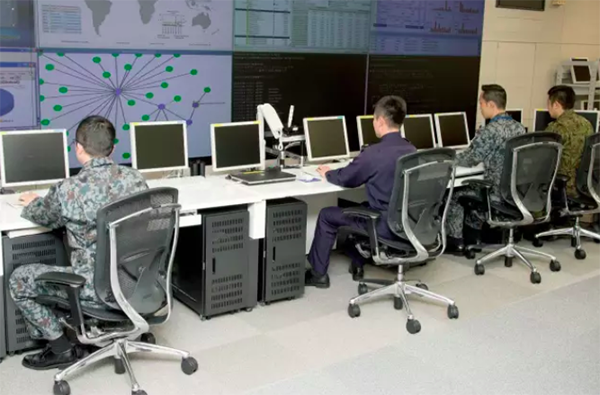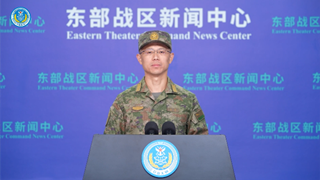
By Wang Aoduo
The Ministry of Defense of Japan will bolster its cybersecurity forces as it plans to expand the current 660 cybersecurity forces of the Japanese Self-Defense Forces (JSDF) to more than 1,000 by 2023, according to Japanese media reports. Why does Japan vigorously expand its cybersecurity forces? What strategic attempt does it reveal? Military observer Du Wenlong provides his interpretations.
Japanese officials pointed out that the expansion of the cyberforce is to ensure that the communication network of the JSDF will not be damaged. In this regard, Du believes that except for some malicious hacking, other countries will not launch online threats against Japanunless Japan provokes other countries online.
Japan, however, played the "sadfishing card" at this time, so as to conceal the true purpose of its cybersecurity forces, which is to implement offensive operations in virtual space to add new combat capabilities and combat spaceto the JSDF through this invisible offense and blade.
It is also reported that the Japanese Ministry of Defense has hired network experts from private companies such as Nippon Telegraph and Telephone Corporation since July 1. Du believes that this move may be based on two considerations.
The first is for"stealth". These experts are not in the Japanese military establishment, but they can join the Japanese cybersecurity forces without expanding the size of their forcesat critical moments. Such "stealth fighters" will enable Japan to have stronger cyber offensive capabilities in the future.
The second is to save time and effort. If Japan quickly concentrates network talents with certain professional knowledge in local communications companies, itscybersecurity forces will be able to form very strong cyber offensive and defense capabilities in a short time. The period can be greatly shortened compared with training personnel from scratch.
In addition, Du also pointed out that Japan's expansion of its cybersecurity forces will encourage its expansion ambitions. Japan has continuously strengthened its cyber-coordination with the US, and its cybersecurity forces have roughly the same structure compared with the US. Japan will have a very serious negative impact on global cybersecurity once it works with the US.
First, the expansion of Japanese cybersecurity forces will promote Japan's military normalization in invisible space. If Japan builds aircraft carriers, bombers, and long-range missiles, it will be restricted by the peace constitution. But if it takes the lead in achieving offensive capabilities within a virtual space that people cannot observe, it will help Japan's ambition of pursuing the so-called "military normalization."
Second, the expansion of Japanese cybersecurity forces will have a great impact on global cybersecurity. Once Japan works with the US, then key areas aroundthe world may become the main targets of a joint US-Japan cyberattack, thereby disturbing the global cybersecurity situation.
Therefore, Du believes that Japan's continuous strengthening of military interaction with the US in cyberattacks and strengthening its cyberattack capabilities will have an extremely serious negative impact on global cybersecurity.
Disclaimer: This article is originally published on the military.cnr.cn, and is translated from Chinese into English and edited by the China Military Online. The information, ideas or opinions appearing in this article do not necessarily reflect the views of eng.chinamil.com.cn.









